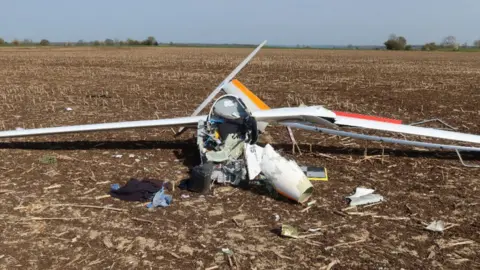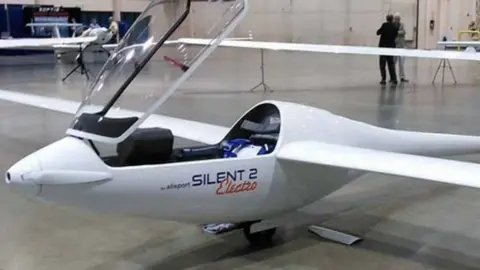Pilot stress 'likely factor' in motor glider crash near Colchester
 AAIB
AAIBPilot workload and stress were likely factors that led to a motor glider crashing nose-first, a report has said.
The 71-year-old man was the only person on board when it stalled just after take-off at Wormingford Airfield near Colchester, Essex, on 23 April 2021.
He spent three months in hospital after suffering life-threatening injuries and was left with no memory of the crash.
Investigators said no mechanical fault was found to explain the glider's "excessively steep" climb.
An Air Accidents Investigations Branch (AAIB) report said the glider climbed steeply to about 100ft (30.5m), causing it to stall and enter a spin before hitting the ground nose-first about 230m (250yd) away.
Its tail had snapped in half, the front of the cockpit was destroyed and both propeller blades had detached.
 AAIB
AAIBThe glider's left wing and propeller are believed to have struck the ground briefly during take-off. which may have distracted the pilot during his climb, investigators said.
They also noted the controls in this type of glider meant pilots received "minimal feedback" about how the aircraft was manoeuvring, making it harder to know when it was at risk of stalling.
In conclusion the AAIB said: "It is likely that distraction, pilot workload or stress were factors in the accident. These factors coupled with the aircraft's characteristics made the accident more likely to occur."

Find BBC News: East of England on Facebook, Instagram and Twitter. If you have a story suggestion email [email protected]
